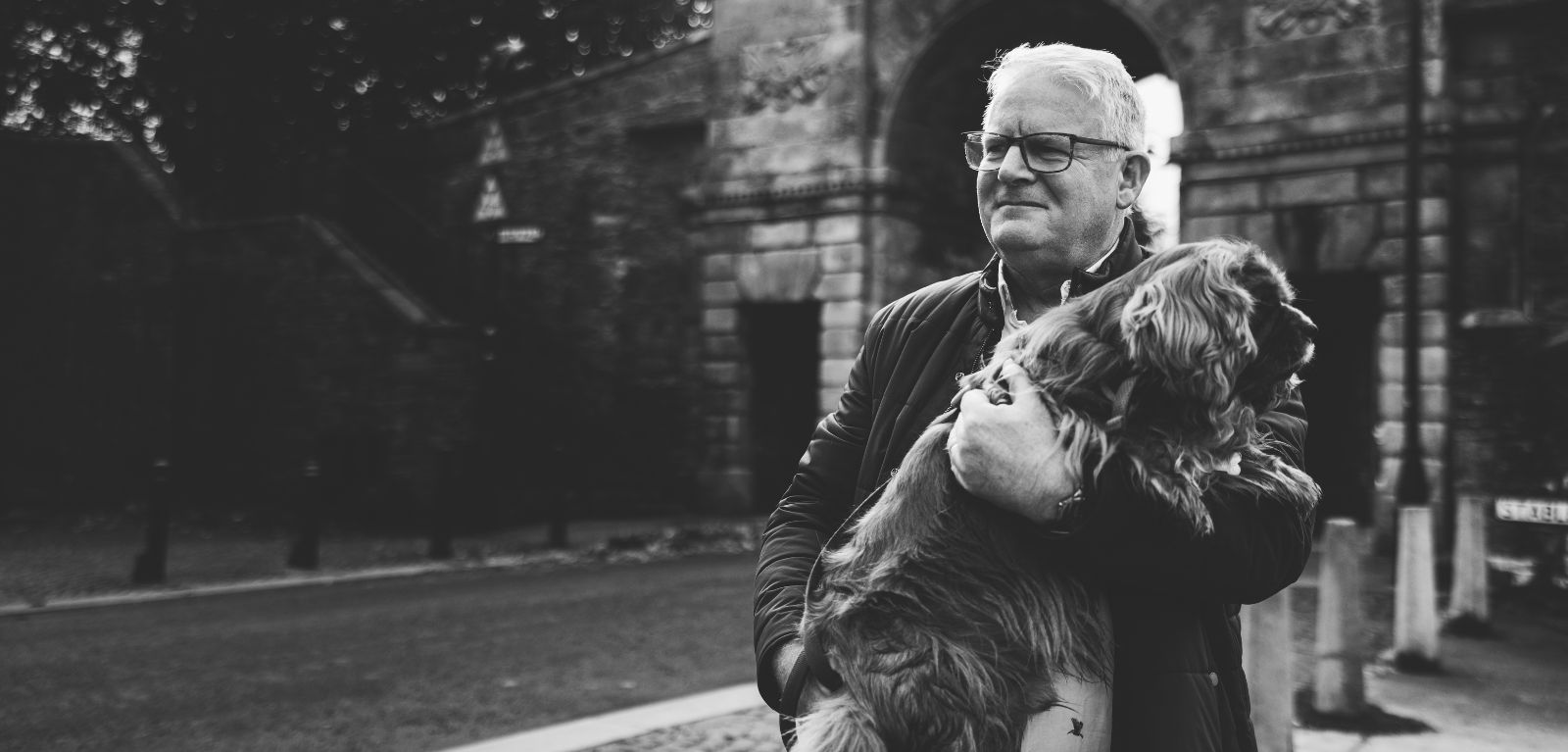Finding Light After the Darkness
When Ken Brown exploded with anger in a chip shop over a wrong order, he knew something was deeply wrong.

“I turned to my wife and said, I think I need help. She just looked at me and said, Yes.”
For Ken, a retired lecturer from Derry, that moment marked the beginning of a journey he never expected to take, one that led him to Queen’s University Belfast and a pioneering research project that turned his life around.
Ken’s Story
Ken’s life has been marked by trauma from an early age. As a young boy in Glasgow, he witnessed a murder. Just months later, visiting Northern Ireland, he and his mother narrowly avoided two car bombs and a shooting in Derry. Over the following decades, further experiences added to the burden.
“I hadn’t spoken about my traumas in 50 years,” he explains. “They built up over time, the hypervigilance, the panic attacks, the anger, the self-harm. At my lowest points, I didn’t want to be here anymore.”
Outwardly, Ken built a successful career. He became a lecturer in engineering, gained multiple degrees, and even achieved a PhD. But his academic drive was also a way of coping.
“I just kept working. I buried myself in research to avoid thinking about what was going on in my head,” he says.
The breaking point came when his mental health collapsed, forcing him to retire early. Soon afterwards, Queen’s Research fellow Dr Nina O’Neill contacted him about joining a major study into new treatments for complex PTSD. Ken agreed, and that decision changed everything. The study is a randomized controlled clinical trial, funded by a £2 million NIHR research grant, to investigate the effectiveness of Trauma Focussed Cognitive Therapy for Complex PTSD with and without a phased element. The trial Chief Investigators are Prof Anke Ehlers, Oxford University and Dr Michael Duffy, SSESW Queen’s University Belfast. The Regional Trauma Network provided the trial sites for Northern Ireland and many of the trial therapists have been trained on the MSc in Specialist Trauma focused CBT and the Clinical Psychology programmes at Queen's.
Ken agreed, and that decision changed everything.
The Turning Point
Ken describes the therapy as unlike anything he’d experienced before.
“It was compassionate. It felt like they were working with me, not just doing therapy to me,” he says. “Step by step, they helped me learn to be gentler with myself.”
He recalls one powerful moment during exposure therapy:
“I went back to the street where I’d been shot at, somewhere I hadn’t set foot in for over 30 years. I was shaking and crying, then I saw two little girls playing. I thought, I’ve wasted 40 years of my life while they’re just happy. That moment really hit me.”
The support went far beyond the clinical sessions.
“At one point I became suicidal again, but my attempt failed. The compassion of the team afterwards was extraordinary. They didn’t judge me. They just cared. That kept me alive.”
Looking Ahead
Ken has now come out the other side of his darkest days. His relationship with his family has transformed.
“They’re no longer walking on eggshells around me. My wife and children say they see the difference in me, and I feel it too.”
He’s also found new purpose in giving back. Today, Ken shares his experiences through Recovery College workshops and peer-support sessions. He is even writing a book about Living with PTSD.
“My hope is simple,” he says. “If even one person reads it and seeks help, it will be worth it.”
A Wider Impact
Ken believes the research that supported his recovery can help many more.
“In Northern Ireland, trauma is ingrained in families. It’s passed down through generations. We need to stop that cycle so people can feel safe in themselves again,” he says.
The Queen’s clinical trial gave Ken the tools not only to survive, but to rebuild his life.
“Without Queen’s involvement,” he says quietly, “I wouldn’t be here today.”
Queen’s 180 Campaign
As Queen's University Belfast marks 180 years, we're not just celebrating our past - we're highlighting the people and communities who have shaped, and been shaped, by our university. Ken’s story is a powerful example of the impact research can have when it meets real human need.
FIND OUT MORE
Help support Queen's University's initiatives